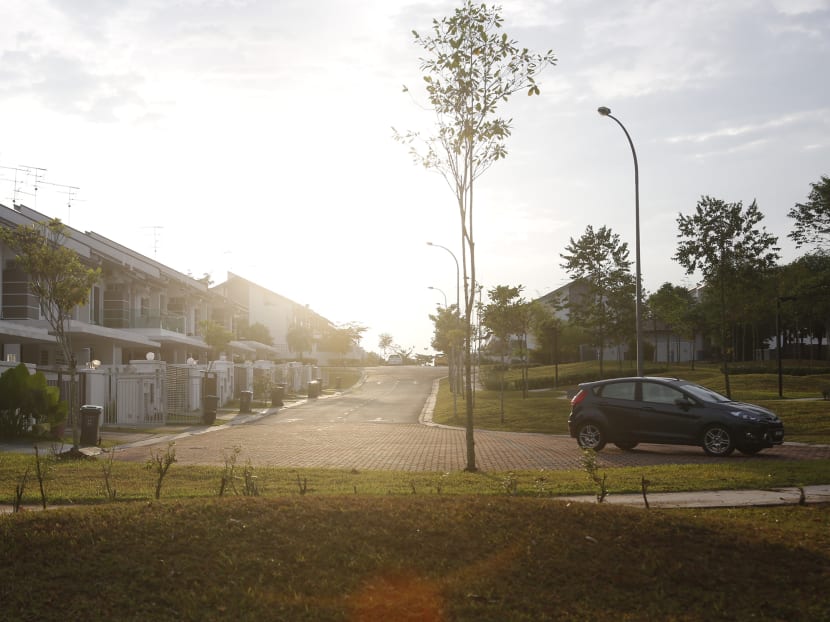Guidelines for foreign property ads by year-end
SINGAPORE — Some were lured into buying an overseas property with promises of high returns but have since lost contact with the property investment company. One buyer had believed that his property was sited in a prime area but found out later this was not true.
SINGAPORE — Some were lured into buying an overseas property with promises of high returns but have since lost contact with the property investment company. One buyer had believed that his property was sited in a prime area but found out later this was not true.
In the light of some consumers losing more than S$100,000, the Consumers Association of Singapore (CASE) is urging the authorities to review how foreign property developers disclose information to buyers, particularly in advertisements.
At the same time, the Advertising Standards Authority of Singapore (ASAS) has announced that by year end, it will implement new guidelines for advertisements pertaining to investments in financial instruments and property, including foreign properties.
CASE has received 13 complaints — seven last year and six in 2013 — from consumers regarding their purchases of foreign properties in Malaysia, the Philippines, India, New Zealand and Canada. A similar number of complaints were made in previous years.
“(Foreign developers) should commit to truthful and honest claims and not make misleading or false representations to investors in order to sell their properties,” said CASE president Lim Biow Chuan, who noted a “recent proliferation” of adverts for foreign property.
“Such advertisements often make positive claims about the investment value of properties and the potential returns, but they seldom clearly disclose the risks and the legal and regulatory framework involved in foreign markets which are very different to Singapore.”
In a media release today (May 4), CASE suggested that developers selling foreign properties here should provide informative fact sheets to investors to include the developer’s financial standing and a proper valuation of the property, among other things.
ASAS, an advisory council of CASE, is now working with the Monetary Authority of Singapore, the Council for Estate Agencies and the industry to improve the Advertising Code with regard to investments, so as to better protect members of the public.
There was growing public concern over claims made last year by property and financial advertisers, including those in insurance, ASAS chairman Tan Sze Wee told TODAY. Misleading claims and a lack of clarity in disclaimers were some of the concern areas.
Enhancements are thus being proposed to improve information disclosure, which may hold foreign and local developers to the same minimum standards, and to strengthen measures for dealing with those who place misleading adverts repeatedly.
This is not the first time overseas property purchases have come under the spotlight.
In March last year, the Council for Estate Agencies (CEA) published an online guide to help consumers with their overseas investments. Practice guidelines for estate agents who market foreign properties were also issued that month.
While the CEA has regulatory oversight of these agents, it is more difficult to seek redress against foreign developers.
Today, CASE pointed out the tandem increase in overseas property purchases made by Singaporeans and the “large number” of such properties being advertised and marketed here.
“Some of these deals have turned sour when prices declined sharply resulting in investors losing a large sum of their money,” it stated.
“There are also reported cases where the developer ... became insolvent and was unable to continue with the development, resulting in a total loss of the investment.”
The consumer watchdog, which cited a recent warning by Maybank analysts about the glut of homes in Malaysia’s Iskandar region as a reminder of the potential risks, cautioned investors to avoid committing to a purchase based on adverts that promise high yields without doing the necessary homework.
Foreign developers whom TODAY contacted did not respond by press time. Some buyers of foreign properties, however, agreed on the need for both clearer advertisements and doing one’s research before buying a property.
One foreign property owner, who wanted to be known only as Mr Lim, suggested that advertisers could be mandated to specify, for instance, which catalogues have interior designs that are not included in the actual property.
The 42-year-old also felt that property developers can be clearer in the type of technology used to construct the property and provide information up front on tax laws in the foreign country.







